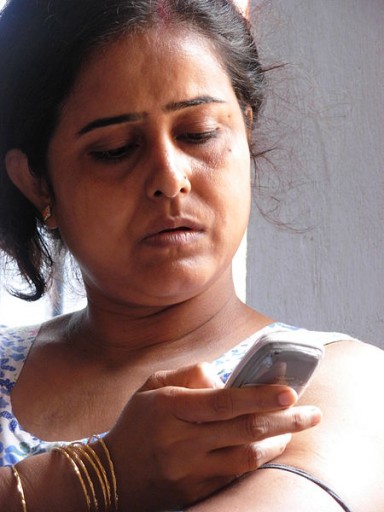Cloud computing for the poorest countries
September 2, 2012

Many people in the developing world do their computing on battery-powered phones (credit: Biswarup Ganguly/Wikimedia Commons)
As companies like Amazon, Google and Microsoft sell computing everywhere, the most dramatic changes may be in places most of us do not now see. Already, places without clean water, decent sanitation or steady electricity are using supercomputers, according to The New York Times Bits.
Unlike the developed world, where speed, agility and cost are factors that make Amazon Web Services attractive, in the developing world it’s good to be on battery-powered phones and servers in California, instead of relying on an often-brittle electric grid.
Cheki is a used car classifieds business that serves up about a billion page views a month, mostly in Kenya and Nigeria. Most of the one million people using the site are looking at it with Android-based smartphones that cost about $70.
Jobberman, Nigeria’s largest jobs and careers Web site, also runs on Amazon Web Services. So does M-Pesa, the mobile payments division of Safaricom, a mobile phone provider based in Kenya. Mobile money has become so big that the Africa Development Bank says the new money may be causing inflation. In South Africa, a luxury goods company called 36Boutiques uses Amazon’s service for e-commerce
In India, there is an online nationwide cab-booking service called Getmecab that uses Amazon servers, though the closest ones are in Singapore. There are consultants that teach other businesses to use Amazon.